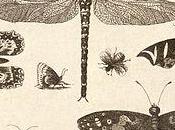Magazine
Mimicking nature, water-based 'artificial leaf' produces electricity
Publicado el 25 septiembre 2010 por FatThe bendable devices are composed of water-based gel infused with light-sensitive molecules – the researchers used plant chlorophyll in one of the experiments – coupled with electrodes coated by carbon materials, such as carbon nanotubes or graphite. The light-sensitive molecules get "excited" by the sun's rays to produce electricity, similar to plant molecules that get excited to synthesize sugars in order to grow, says NC State's Dr. Orlin Velev, Invista Professor of Chemical and Biomolecular Engineering and the lead author of a paper published online in the Journal of Materials Chemistry describing this new generation of solar cells.
Velev says that the research team hopes to "learn how to mimic the materials by which nature harnesses solar energy." Although synthetic light-sensitive molecules can be used, Velev says naturally derived products – like chlorophyll – are also easily integrated in these devices because of their water-gel matrix.
Now that they've proven the concept, Velev says the researchers will work to fine-tune the water-based photovoltaic devices, making them even more like real leaves.
"The next step is to mimic the self-regenerating mechanisms found in plants," Velev says. "The other challenge is to change the water-based gel and light-sensitive molecules to improve the efficiency of the solar cells."
Velev even imagines a future where roofs could be covered with soft sheets of similar electricity-generating artificial-leaf solar cells.
"We do not want to overpromise at this stage, as the devices are still of relatively low efficiency and there is a long way to go before this can become a practical technology," Velev says. "However, we believe that the concept of biologically inspired 'soft' devices for generating electricity may in the future provide an alternative for the present-day solid-state technologies."
**Published in "Eurekalert.org"
Quizás te interesen los siguientes artículos :
-
Starting from Scratch V. The Costumes: capes and masks
Image via WikipediaHere are some other ideas for costumes for a stage play about insects (in this case for an adaptation of the children's song "Ugly Bug... Leer el resto
Por Eldragon
CULTURA Y OCIO, INFANCIA, TEATRO, INGLÉS -
Johann Wolfgang von Goethe (1749-1832). Internet Encyclopedia of Philosophy
Author InformationAnthony K. JensenEmail: [email protected] University of New York / Lehman CollegeU. S. A.Goethe defies most labels, and in th... Leer el resto
Por Vicente
INGLÉS -
¿Está el trabajo en equipo sobrevalorado?
Hace algunas semanas escribíamos un post titulado: ¿Está la humildad sobrevalorada?; y comento esto porque el otro día en la Harvard Business Review, Jeff Stibe... Leer el resto
Por Falcaide
INGLÉS -
3-D movie shows, for the first time, what happens in the brain as it loses...
For the first time researchers have been able to watch what happens to the brain as it loses consciousness. Using sophisticated imaging equipment they have... Leer el resto
Por Fat
INGLÉS -
Agonz interviews Chris Avellone
A couple of weeks ago Mr. Orange recommended me to play Alpha Protocol if I wanted to experience, in his words, “the new reference in action – consequences”. Leer el resto
Por Mugen
INGLÉS -
Tecan's new Infinite® M1000 – the future of microplate detection has just arrived
Tecan has recently updated its Infinite M1000 high-end multimode microplate reader with new features designed to offer the same top class performance for an eve... Leer el resto
Por Fat
INGLÉS -
¿Cómo la impresión 3D está transformando la construcción y la vivienda del...
¿Te imaginas poder imprimir una casa completa en cuestión de días? Suena futurista, pero ya es una realidad. La impresión 3D está revolucionando la... Leer el resto
Por Nicolases
TECNOLOGÍA
Sus últimos artículos
-
Hm hospitales recibe a tres nuevos médicos residentes que comienzan su formación postgrado en los centros del grupo
-
Finaliza el reclutamiento de pacientes para el ensayo fase III de tivantinib para el tratamiento del cáncer de pulmón no microcítico
-
Expertos debaten sobre las nuevas Guías ESC de Insuficiencia Cardiaca (IC) y el manejo del paciente con IC
-
Las Unidades de Manejo Integral de Pacientes con Insuficiencia Cardiaca reducen las visitas a Urgencias entre un 30-60% y los ingresos en un 40%



